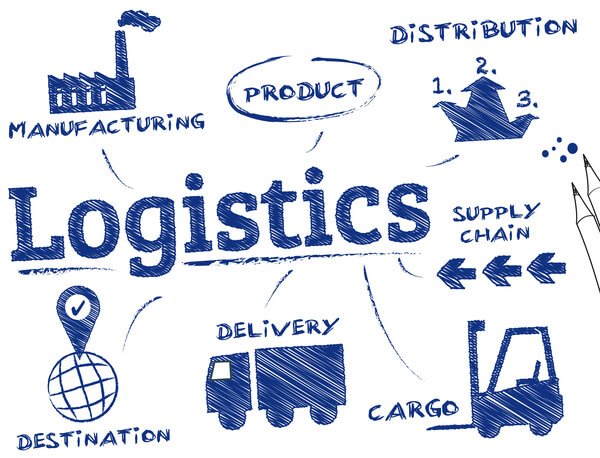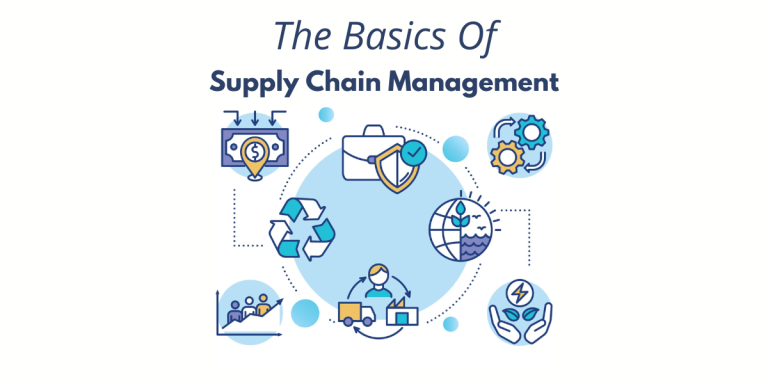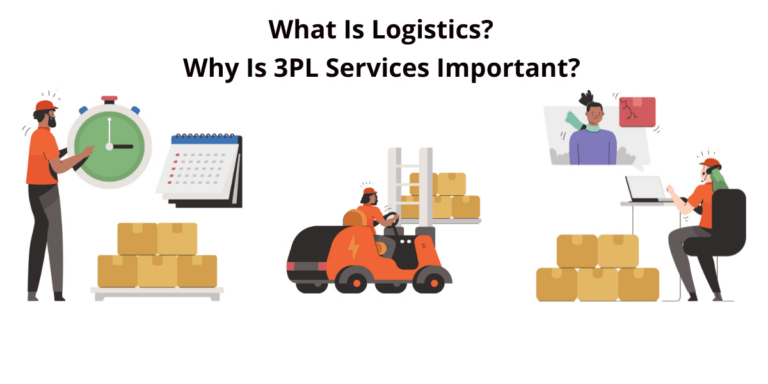10 Facts About Supply Chain Analysts Skills You Need to Know About
What is a supply chain analyst?
A supply chain analyst is a professional who analyzes data and methods to predict and improve a company’s delivery of products and services to its customers.
They monitor the supply chain performance, identify trends and risks, and provide recommendations for action plans to reduce risk, achieve efficiency, and manage costs across the supply chain.
They typically report to a manager or director of supply chain management and use quantitative analysis, interpersonal communication, organizational abilities, critical thinking, and problem-solving skills to fulfill their responsibilities.
A supply chain analyst is essential for ensuring a company’s supply meets customers’ demands.
Qualifications
The supply chain management certification is important for those looking to work in the field, as it demonstrates a comprehensive understanding of all aspects of supply chain processes.
The certification comprises three courses and an exam, and upon completion, individuals will become Certified Supply Chain Analysts.
To attain the supply chain certification, individuals must demonstrate proficiency in the supply chain terminology used throughout the industry, the relationship between Strategic Planning, S&OP, and Process Execution, and how to manage the flow of goods and materials in the supply chain.
Additionally, they must familiarize themselves with continuous improvement tools such as Lean and Six Sigma.
Once the certification is obtained, it will be a great asset when conversing and negotiating with vendors.
| Skills required by employers | Share |
|---|---|
| Supply chain experience | 26.78% |
| Analysis | 10.73% |
| Collaboration | 10.28% |
| Innovation | 8.64% |
| Communication skills | 8.63% |
| Forecasting | 7.24% |
| Supply chain management | 7.24% |
| SAP | 7.01% |
| Procurement | 6.97% |
| MS Office | 6.48% |
Responsibilities and tasks
A supply chain analyst is a professional responsible for analyzing and overseeing the organization’s supply chain operations.
They are responsible for managing and optimizing the procurement, production, storage, and delivery of materials and products cost-effectively and efficiently.
This includes analyzing current processes, identifying areas for improvement, and implementing strategies to increase efficiency and reduce costs.
What are the skills required to become a supply chain analyst?
Becoming a successful supply chain analyst requires hard and soft skills, such as analytical, mathematical, logical thinking, and interpersonal skills.
To help manage the complex movement of products between the following:
- suppliers
- warehouses
- customers
Supply chain analysts must understand enterprise resource planning (ERP) technology like SAP or Salesforce and be able to communicate with cross-cultural teams and colleagues effectively.
They must possess strong organizational skills and the ability to maintain records across various tools and systems, as well as the ability to remain focused and disciplined in a fast-paced environment with competing priorities and deadlines.
Additionally, supply chain analysts must have an aptitude for critical thinking and problem-solving to develop and implement logistical plans and continually optimize costs and efficiency.
Data analysis skills
A wide range of data analysis skills is required to become a successful supply chain analyst.
These skills range from a basic understanding of mathematics and statistical analysis to advanced skills like software proficiency, communication, critical thinking, problem-solving, and organization.
Basic mathematical and statistical analysis skills are essential for supply chain analysts, as they need to understand data sets, identify trends, and make cost-effective decisions to maximize efficiency.
They must also be able to utilize software programs such as MS Office, Oracle, and SAP to assess and analyze the data accurately.
In addition, supply chain analysts must also possess interpersonal communication skills to communicate their findings and recommendations to management.
Moreover, they must be effective problem solvers and understand organizational abilities to manage multiple responsibilities and prioritize tasks.
Last, a supply chain analyst must possess strong critical thinking skills to identify potential inefficiencies and develop creative strategies to maximize supply chain efficiency.
Furthermore, they must have excellent presentation skills to effectively communicate their results to stakeholders.
The data analysis skills required to become a successful supply chain analyst are diverse.
They require a deep understanding of mathematics and a working knowledge of software programs, communication, critical thinking, problem-solving, and organization.
A supply chain analyst can analyze data and make cost-effective decisions to maximize supply chain efficiency only with a combination of these skills.

Mathematical skills
To become a successful supply chain analyst, one must possess strong mathematical skills.
This is because the job requires interpreting and analyzing large and complex datasets to identify inefficiencies and optimize processes.
Analysts must understand and apply mathematical concepts like linear programming, calculus, probability, and statistics to draw meaningful insights from the data.
Additionally, they must be adept with software such as Excel and SQL to manipulate and analyze the data.
The job of a supply chain analyst requires a deep understanding of mathematics for various tasks.
For example, forecasting requires using statistical principles and models such as regression, time series, and linear programming to predict future trends.
Optimization processes such as inventory management and network design also incorporate mathematical algorithms and data analysis to solve complex problems.
Analysts will also use mathematical principles to analyze and reduce supply chain risk.
Being a successful supply chain analyst requires both technical and interpersonal skills.
They must possess a combination of mathematics, analytical skills, and interpersonal communication skills to effectively analyze and interpret data and communicate results to other stakeholders.
Furthermore, they must also have strong organizational and problem-solving skills to manage multiple projects and tasks simultaneously.
They must also be able to work independently and possess confidence when making decisions and recommendations.
Finally, they must also be proficient with software such as Excel and SQL to manipulate and analyze data.
Technical skills
Supply chain analysts must possess various technical skills, such as the knowledge of SQL, Excel, and other data analysis tools to analyze large and multi-dimensional data sets.
They must also be able to evaluate the logic of proposed modifications to ensure they are a better alternative for the organization, empowering them to influence corporate decisions.
Quantitative and analytical skills
To become a successful supply chain analyst, one must possess various skills, such as quantitative and analytical skills, as well as interpersonal, organizational, and problem-solving skills.
Quantitative skills are necessary for analyzing large and multi-dimensional data sets.
In contrast, analytical skills, such as data analysis, interpretation, and visualization, are essential for making sense of the data.
Additionally, the analyst must have concrete mathematical skills, such as those involving mathematical analysis, to accurately calculate costs and savings-related data.
Furthermore, to ensure the data is correctly and efficiently organized, the analyst must also be proficient in software tools, such as the following:
- Excel
- MS Office
- Google Suite
- Oracle
- SAP
- APO Systems
- ERP Systems
- TMS Systems
Moreover, the analyst must also have good knowledge of SQL to query and manipulate the data effectively.
Finally, the analyst must possess strong critical thinking, communication, and problem-solving skills to assess the data and make intelligent decisions accurately.
Overall, having a good combination of quantitative, analytical, and interpersonal skills is key to being a successful Supply chain analyst.
Logical thinking skills
Logical thinking skills are the ability to think rationally and with clarity.
They involve analyzing facts and using reason and logic to conclude.
Logical thinking skills are essential for a successful supply chain analyst as they are essential to making decisions, evaluating information, and problem-solving.
Thinking logically enables supply chain analysts to find the most efficient and cost-effective solutions to problems in their daily work.
They must think creatively to come up with out-of-the-box solutions to complex problems.
Logical thinking skills help supply chain analysts break down complex problems into more manageable pieces to identify the root causes of a problem, spot patterns, and find better ways to approach it.
Logical thinking skills are also important for supply chain analysts because they help them identify trends in data and make predictions based on their findings.
They must be able to evaluate data, draw meaningful conclusions, and think critically to make well-informed decisions.
With their logical thinking skills, supply chain analysts can identify potential improvement areas and develop actionable solutions.
Overall, logical thinking skills are essential for supply chain analysts because they help them make informed decisions, evaluate complex data, and develop creative solutions to problems.
With their logical thinking skills, they can be more effective in their roles and help the organization meet its objectives.

What is a CPSM certification?
A Certified Professional in Supply Management (CPSM) is a certification program offered by the Institute for Supply Management (ISM) to supply chain professionals who want to demonstrate their mastery of the essential supply chain body of knowledge.
It includes three levels of certification and requires the completion of four skill-building courses, which cover foundational topics, processes, and strategies related to supply chain management.
To become CPSM certified, those enrolled in the program must complete and pass all 3 preparatory courses and the final course, the ISCEA Certified Supply Chain Analyst (CSCA) Exam.
The program typically lasts 3 months and requires an estimated 2 – 8 hours of weekly study.
Upon completing the program and passing the exam, individuals will receive the internationally recognized CPSM-certified professional designation.
This certification is valuable for those who wish to demonstrate their knowledge and commitment to the profession and those who wish to progress their current career in supply chain management.
10 informative facts about supply chain analysts
Supply chain analysts are responsible for analyzing and optimizing a company’s supply chain operations to improve efficiency, reduce costs, and ensure that products are delivered on time.
They play a critical role in the modern digital world, helping to facilitate the speedy and cost-effective delivery of goods around the globe.
1. A supply chain analyst analyzes, optimizes, and manages a company’s supply chain.
A supply chain analyst’s responsibility is to analyze data and methods to predict and improve a company’s delivery of products and services to its customers.
They use data to support their recommendations for optimizing the methods within the company in terms of production, supplies, and transportation.
Supply chain analysts are responsible for analyzing and optimizing a company’s supply chain operations to improve efficiency, reduce costs, and ensure that products are delivered on time.
They must identify and measure inefficiencies and costs, determine how to streamline the supply chain, create strategies for improvement, and monitor production, inventory levels, and shipping times.
To do this, supply chain analysts must be strong in critical thinking and possess a high level of quantitative analysis.
They must also possess excellent communication skills to convey complex ideas to others.
2. A supply chain analyst needs excellent analytical skills and the ability to apply them to data.
Supply chain analysts need excellent analytical skills to apply them to data to accurately analyze, measure, and monitor supply chain operations.
They must be able to think critically to identify and evaluate inefficiencies and craft strategies for improvement.
Quantitative analysis is also essential for calculating supply chain costs and savings.
Furthermore, effective communication skills are necessary for supply chain analysts to explain complex ideas to stakeholders and motivate them to make changes.
In conjunction with strong problem-solving and organizational skills, these analytical and communication skills are essential for supply chain analysts to efficiently and effectively monitor and optimize the supply chain.

3. A supply chain analyst must have strong communication and teamwork skills to collaborate with other teams.
A supply chain analyst must possess strong interpersonal, communication, organizational, and time management skills to collaborate with other teams successfully.
Effective communication is essential for building relationships with suppliers, customers, and teams from different departments.
The analyst must also use critical thinking and problem-solving skills to develop and implement logistical plans, address issues that arise, and find solutions to improve costs and efficiency.
To coordinate the complex movement of products, the analyst must be able to maintain records across multiple tools and systems and manage multiple projects at once.
In addition, the analyst must know various tools and technologies, such as enterprise resource planning (ERP) technology like SAP or Salesforce, to process data and make business decisions.
Finally, the analyst must be able to focus on multiple moving targets to negotiate better deals, address consumer inquiries, and analyze customer needs to boost sales.
These skills are essential for a supply chain analyst to build and maintain relationships, ensure efficiency, and improve costs.
4. A supply chain analyst must know various software applications and tools.
Supply chain analysts are key in optimizing the supply chain and business operations.
To succeed, they must possess various technical and soft skills and be knowledgeable in various software applications and tools.
ERP technologies allow for the tracking and analysis of data across various tools and systems, while SQL analysis tools allow for the analysis of large data sets.
Analytical models and mathematical analysis are used to develop and implement logistical plans, and consumer product experience can be beneficial when coordinating the movement of products between suppliers, warehouses, and customers.
Knowledge and experience in these software applications and tools can greatly assist any supply chain analyst and help increase efficiency and effectiveness.
These tools can allow businesses to understand the flow of goods and services better, forecast demand, and reduce costs.
Furthermore, understanding the features of these tools and how to use them can help supply chain analysts collaborate with cross-cultural teams and colleagues, respond to issues that arise, and find solutions to improve costs and efficiency.
5. A supply chain analyst needs to know industry practices and standards.
A supply chain analyst needs the knowledge to fulfill their job responsibilities.
This includes knowledge of core workplace (soft) skills such as effective communication, critical thinking and problem-solving, interpersonal skills, organizational skills, and time management.
Additionally, they need knowledge of tools and technology such as enterprise resource planning (ERP) technology and Salesforce to handle and process data meaningfully.
They must also know quant and statistics to analyze large data sets and deliver analytical support for projects.
Lastly, they should be knowledgeable in production planning, inventory management, raw material sourcing, demand planning, supply chain network design and distribution planning.

6. A supply chain analyst must know about production planning.
A supply chain analyst is responsible for analyzing and optimizing a company’s supply chain operations to improve efficiency, reduce costs, and ensure that products are delivered on time.
To do this, they must thoroughly understand the various stages of supply chain management, such as production planning, inventory management, and logistics.
Production planning involves developing and executing logistical plans, while inventory management involves maintaining records across various tools and systems.
On the other hand, logistics focuses on moving goods from suppliers to warehouses and customers.
With knowledge of these processes, supply chain analysts can identify inefficiencies and costs, create strategies for improvement, and ensure that products are delivered on time.
Furthermore, supply chain analysts must have strong organizational and problem-solving skills and effective communication and interpersonal skills to effectively and efficiently collaborate with various teams and vendors.
7. A supply chain analyst needs to know the costs, revenue, and risks associated with the supply chain.
A supply chain analyst must know the types of costs, revenue, and risks associated with production planning, inventory management, and logistics.
They must identify the best solutions to maximize the supply chain efficiency, maintain costs, and minimize risks.
Furthermore, they must identify areas where cost savings can be achieved and ways to increase revenue.
The supply chain analyst can create the most cost-effective and efficient solutions by understanding the associated costs, revenues, and risks.
8. A supply chain analyst must know about optimization projects and initiatives.
A supply chain analyst must understand production planning, inventory management, and logistics to effectively optimize supply chain projects and initiatives.
They must be proficient in analyzing large data sets, developing strategies and solutions to improve efficiency, and implementing improvements to meet customer demands.
They must also have a good knowledge of quant and statistics to accurately interpret data and extract actionable insights.
Additionally, they need to communicate effectively with team members from various departments, vendors and customers to coordinate a streamlined flow of materials, manage projects and address consumer needs.

9. A supply chain analyst must know about inventory management and logistics.
To effectively accomplish their responsibilities, a supply chain analyst needs to know about the following:
- production planning
- inventory management
- raw material sourcing
- demand planning
- supply chain network design
- distribution planning
- forecasting
- analysis
- organizational skills
- quant and statistics
- critical thinking
- problem-solving
- communication
- interpersonal skills
- organizational skills
- time management
- tools and technology and
- logistics
10. A supply chain analyst needs to understand the upsides and pitfalls of a supply chain.
The upside of having a supply chain is that it can provide an efficient, cost-effective means of delivering products to customers. It can also help mitigate risk by reducing reliance on a single supply source.
With a well-structured supply chain, companies can reduce overhead costs, increase profits, and maintain customer satisfaction.
The downside of having a supply chain is that it can be difficult to ensure that all the parts are working correctly.
There is a lot of complex data and analytics to monitor, and errors can be costly if not caught quickly.
Additionally, supply chain analysts must be able to quickly identify and address any inefficiencies or discrepancies to make sure the supply chain runs smoothly.
Finally, the size and complexity of the supply chain can make it difficult to scale quickly in times of rapid growth.
- 10 Facts About Supply Chain Analysts Skills You Need to Know About - April 24, 2023
- What Are The Most Common Shipping Mistakes and How to Avoid Them - December 8, 2021
- What is “Reverse Logistics” and How Can You Benefit From It? - November 24, 2021







